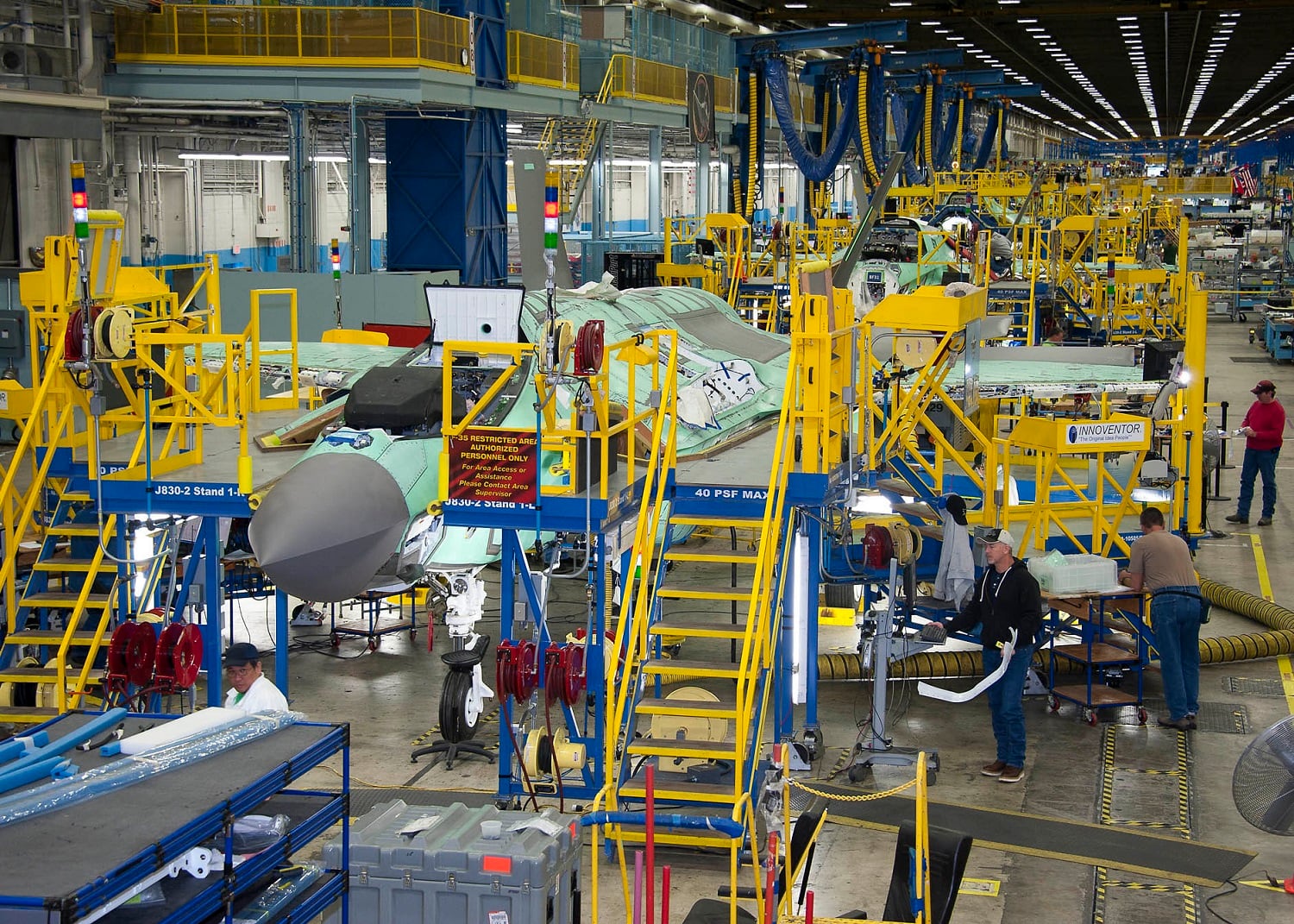WASHINGTON — President Donald Trump’s aluminum and steel tariffs are aimed at improving national security, but Senate Armed Services Committee Chairman John McCain has added his voice to those saying it will do just the opposite.
“President Trump’s contention that steel and aluminum imports are threatening our national security and defense industrial base is simply not supported by the evidence,” McCain, R-Ariz., said in a statement Thursday.
Citing Defense Department statistics, McCain said U.S. military requirements for steel and aluminum each represent only about 3 percent of U.S. production. DoD assesses that its programs are able to acquire all the steel and aluminum necessary to meet national defense requirements, he said.
“In fact, by potentially triggering significant increases in the price of steel and aluminum, President Trump’s new tariffs could harm our national defense by raising the cost of production for critical military systems needed to sustain the United States’ comparative military advantage against our adversaries, from ships, to armored vehicles, to fighter aircraft,” McCain said.
McCain said the tariffs would hurt the American economy, American workers, and relations with America’s allies and partners. A free trade proponent, he also rapped Trump for withdrawing from the Trans-Pacific Partnership.
Unswayed by Republican warnings of a trade war, Trump ordered steep new tariffs on steel and aluminum imports to the U.S. on Thursday, vowing to fight back against an “assault on our country” by foreign competitors. The president said he would exempt Canada and Mexico while negotiating for changes to the North American Free Trade Agreement.
A host of Republicans have expressed deep concerns about the tariffs. One, Arizona Republican Sen. Jeff Flake, has threatened to introduce legislation to nullify them.
In announcing the tariffs at the White House, Trump said they were justified on national security grounds, because crucial military hardware is made using those metals.
“A strong steel and aluminum industry are vital to our national security,” Trump said. “Absolutely vital. Steel is steel. If you don’t have steel, you don’t have a country.”
Aerospace Industries Association President and CEO Eric Fanning reacted swiftly, voicing concern the tariffs would hinder U.S. defense and aerospace manufacturers from staying competitive internationally. The 10 percent aluminum tariff is projected to cost U.S. manufacturing $2 billion unnecessarily, he said.
“We are disappointed that the President has decided to move forward with tariffs on steel and aluminum,” Fanning said in a statement. “Our industry employs 2.4 million people and produced a trade surplus of $86 billion last year. Tariffs on aluminum and steel would jeopardize that surplus and put those jobs at risk.”
“We’re committed to President Trump’s vision of a healthy and robust manufacturing and defense industrial base,” Fanning’s statement read. “We look forward to working with the Administration and Congress to find better solutions to strengthen American industry.”
Ahead of the announcement, seven Senate Republicans sent Trump a letter warning his tariffs would endanger national security, America’s alliances and the success of the new national defense strategy.
The senators included SASC Emerging Threats and Capabilities Chairwoman Joni Ernst, R-Iowa, SASC Cybersecurity Subcommittee Chairman Mike Rounds, and Sen. Dan Sullivan, R-Alaska.
“We’re on the verge of a painful and stupid trade war, and that’s bad,” said another SASC member, Sen. Ben Sasse, R-Neb.
SASC member Jeanne Shaheen, D-N.H., said the directive, “continues to jeopardize strategic relationships with key American allies and I’m very concerned about the damage this could cause.”
House Armed Services Committee Chairman Mac Thornberry, R-Texas, ahead of the announcement, said he worried broad tariffs would hurt the U.S. defense-industrial base, antagonize longtime allies and assist geopolitical adversaries like Russia and China.
“Tariffs are a bad idea,” Inside Defense quoted Thornberry as saying. “It will increase the cost of building ships and airplanes. What I worry most about, however, are the geo-strategic implications. If we make it more difficult for allies to work with us, to trade with us, then we are promoting China’s and Russia’s best interests as they try to undercut us.”
House Armed Services Seapower Subcommittee Chairman Rob Wittman, R-Va., told the Washington Examiner the tariffs would not hurt Navy shipbuilding because U.S. submarines and aircraft carriers use “higher quality, American-made steel.”
“However, we can’t forget how this decision will [affect] other American businesses,” Wittman said. “Free trade is extremely important and I have deep reservations about how this decision could affect our economy.”
RELATED

In February 2018, a U.S. Commerce Department investigation concluded that the current level of aluminum and steel imports into the U.S. has the potential to threaten national security.
The White House fact-sheet on the tariffs noted that aluminum is used in a range of ground weapons and aircraft, including the Armored Multi-Purpose Vehicle, Amphibious Assault Vehicle, Bradley Fighting Vehicle, AH-64 Apache Helicopter, and the V-22 Osprey. Steel, it also noted, is required for a range of aircraft carriers, amphibious force ships, submarines, tanks, and light armored vehicles.
The White House argued that further closures of domestic steel and aluminum facilities could render the U.S. unable to produce enough steel and aluminum to meet national defense and critical industry needs in the event of a national emergency.
The loss of skilled steel and aluminum workers threatens the competitiveness of the industry and would be problematic in the event of a major production surge or mobilization, the White House said.
Joe Gould was the senior Pentagon reporter for Defense News, covering the intersection of national security policy, politics and the defense industry. He had previously served as Congress reporter.








